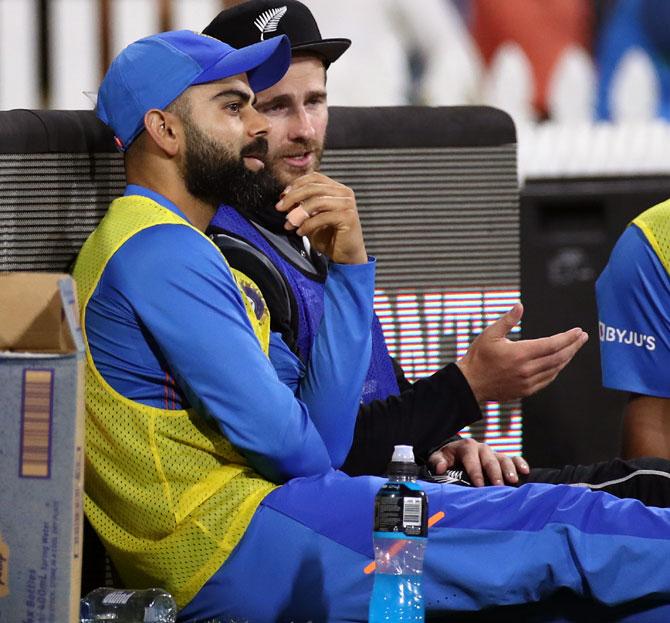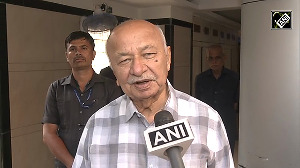'What you've really got to try and get is something that's less complex and a bit more straightforward in order for people to understand.'

Former England skipper Michael Atherton believes the ICC ODI Super league is "incredibly complex" and the game's governing body should have come up with "a bit more straightforward" qualification system for the 2023 World Cup in India.
The ICC on Monday launched the ODI Super League which will determine qualification for the men's World Cup in 2023. The top seven teams from the league will automatically book their spot at the event in India.
The competition begins with a series between world champions England and Ireland from July 30.
"There is always logic in everything that happens, but what tends to happen is that it's incredibly complex because what you're trying to do is fit two systems together," Atherton said on Sky Sports Cricket.
"You've got the ICC global events -- World Cup, World T20, and what was the Champions Trophy -- and you're trying to marry that with the usual bilateral series in what's called the Future Tours Programme where every team plays against each other.
"Trying to mix those two together is incredibly difficult, and you end up with this."
Featuring 13 teams, the 12 ICC Full Members and the Netherlands, who qualified by winning the World Cricket Super League 2015-17, the Super League will see each side play four home and four away three-match series.
Each team gets 10 points for a win, five for a tie/no result/abandonment and none for a loss. They will be ranked according to total points earned across the eight series and criteria are in place to separate two or more teams on equal points.
The 52-year-old former batsman, who scored 7728 runs in 115 Tests for England, said a less complex system would have been easier for the public to understand.
"Try explaining this to the man on the street, try explaining the World Test Championship to the man on the street, which we find it hard enough to understand and we work in the damn game, and then try explaining that to the man on the street," he said.
"What you've really got to try and get is something that's less complex and a bit more straightforward in order for people to understand."
Former England captain Andrew Strauss, who sits on the ICC's cricket committee, however, said it is impossible to get a more straight forward system and the governing body is criticised no matter what it does.
"It makes complete sense to try and find something more straightforward but it's not possible," he said.
"We all talk about meaningless bilateral cricket that doesn't have any context, and then the ICC try and put together the World Test Championship and everyone goes 'the points system is too complicated' and then they try the Super League and they say 'Why are they doing that?'
"They're damned if they do, they're damned if they don't."
The ICC had drawn criticism from players such as New Zealand skipper Kane Williamson who felt the points system is not fair, while India captain Virat Kohli had said that overseas wins should be rewarded more in the WTC.












 © 2025
© 2025